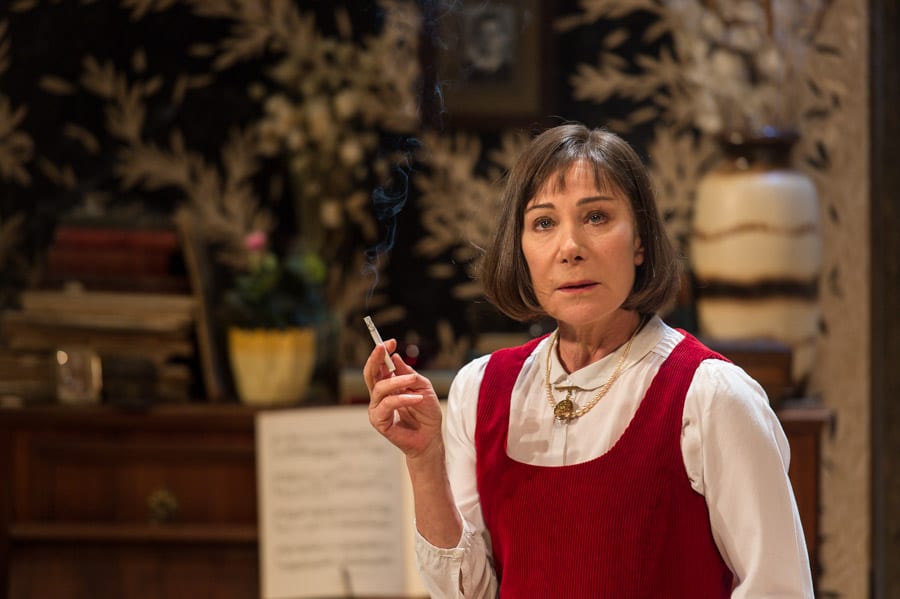After its successful run at Chichester last year, the Hampstead Theatre is the second playhouse to host Christopher Morahan’s revival of Hugh Whitemore’s 1977 play ‘Stevie.’ Revolving around the life of eccentric poet Stevie Smith of Palmer’s Green, the play insists on framing the poet within a domestic setting: her and her ‘Lion Aunt’ prefer the plush front room of their middle-class home to the lush vegetation that springs at the back of the stage, or the mundane literary scene of Central London. Her aunt, wonderfully played by Lynda Baron, whether crying out `stuff and nonsense’ (her battle cry) or pouring out the ritual sherry into tiny cups, creates the beating heart of the piece, the domestic pillar to whom Stevie always returned and whose demise, every painful shuddering step, rings movingly true.
The play is loosely chronological – indicated by such details as Stevie trading her matches for a cigarette lighter – but the main protagonist, despite age and growing fame, remains positively the same. Sardonic and acerbic, childlish but in love with death, Stevie Smith is full of contradictions and these are impeccably rendered by Zoe Wanamaker. Her performance is touching, gripping, funny and remains the main reason one should go to watch Stevie. It is well helped by costume supervisor Bill Butler whose dresses manage to look both too young and too big for her, suggesting that the adult Stevie remains a little girl pretending to be grown up. Stevie is at once shy, socially insecure and thirsty for recognition, deeply devoted to her aunt but disinterested in marriage. The general skepticism that her refusal to marry encountered is one of the best exploited aspects of her personality: her claim that ‘I am made for friendship’ is believable, and her general disinterest in men is well reflected in the same actor (Chris Larkin) alternatively playing an old beau, a journalist and a friend as if all were interchangeable.
Stevie Smith’s poems seamlessly drift in and out of the narrative and, while ‘this Englishwoman is so refined / she has no bosom and no backside’ is a powerful punchline to read out loud, some of her more introspective poems struggle to find a resonance within the action of the play and are indeed hard to reconcile with the character we are presented with. The text tries hard to offer an insight into Stevie Smith’s personality at the expense of her work, and I did not feel convinced that Stevie Smith is a significant poetical voice as I got up to leave.
In fact, Stevie Smith spent 65 years of her life in this Avondale Road house and Stevie’s Hull-born, northern buttress to her fingertips in a plush middle-class living room, her schedule is dominated by tea and brandy.



